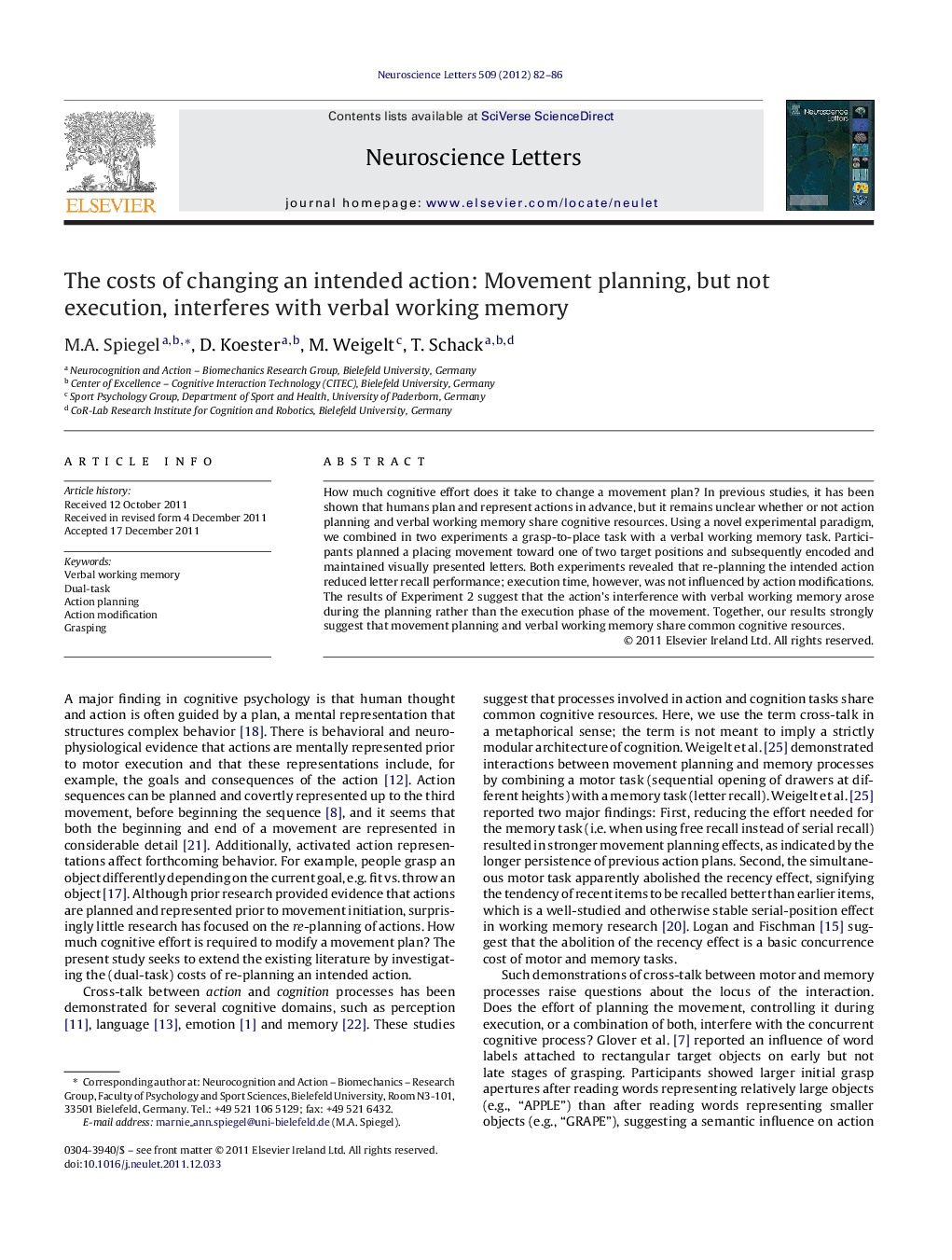| Article ID | Journal | Published Year | Pages | File Type |
|---|---|---|---|---|
| 4344720 | Neuroscience Letters | 2012 | 5 Pages |
How much cognitive effort does it take to change a movement plan? In previous studies, it has been shown that humans plan and represent actions in advance, but it remains unclear whether or not action planning and verbal working memory share cognitive resources. Using a novel experimental paradigm, we combined in two experiments a grasp-to-place task with a verbal working memory task. Participants planned a placing movement toward one of two target positions and subsequently encoded and maintained visually presented letters. Both experiments revealed that re-planning the intended action reduced letter recall performance; execution time, however, was not influenced by action modifications. The results of Experiment 2 suggest that the action's interference with verbal working memory arose during the planning rather than the execution phase of the movement. Together, our results strongly suggest that movement planning and verbal working memory share common cognitive resources.
► We examine shared cognitive resources of action planning and verbal working memory. ► Re-planning an intended action reduces verbal working memory performance. ► Execution time is not influenced by action modifications. ► The amount of dual-task costs is determined by action planning load but not execution demands. ► We conclude that movement planning processes involve cognitive mechanisms that are also required for verbal working memory.
